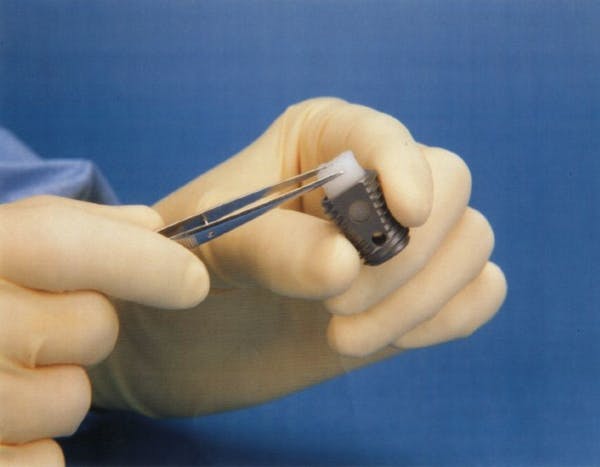A U.S. Senate report released Thursday raising questions about the veracity of the research backing a spine surgery product made by Medtronic Inc. may further dampen sales.
Called Infuse, the genetically engineered protein is used to grow bone in the lower back after spine surgery. The product generated about $800 million in sales in fiscal 2012 for the Fridley-based medical technology giant, which has annual revenue of $16.2 billion.
But ever since Infuse was approved by the Food and Drug Administration in 2002, questions have dogged Medtronic about its relationships with doctors who served as its paid consultants. On Thursday, the Senate Finance Committee released details from a 16-month probe that found physicians and researchers who tested and reviewed Infuse were paid $210 million in consulting and royalty fees by Medtronic over 15 years.
"If surgeons had known that the lead authors of the 13 original studies on Infuse had received payments ranging from $1.7 [million] to $64 million from Medtronic and that its marketing employees were co-authors and co-editors [of the studies], would they have been as eager to use Infuse on their patients?" asked the North American Spine Society in a statement.
While collaboration between doctors and med-tech companies can benefit patients, the society said, "these relationships must conform to the highest standards of ethics and disclosure."
Medtronic said it disagrees with many of the findings in the Finance Committee's report. The company has commissioned independent researchers at Yale University to sift through data on Infuse, the findings of which are expected in January.
Glenn Novarro, an analyst for RBC Capital Markets, said in a note to investors that the Finance Committee's report is likely to be a "public relations nightmare" for Medtronic at the annual North American Spine Society doctors meeting, taking place in Dallas this week. Overall, Infuse represents 2 to 2.5 percent of Medtronic's equity value, he said.
Sales of Infuse dropped 10 percent after the Spine Journal, a major publication for back surgeons, published a study in June 2011 that found researchers with ties to Medtronic failed to report complications associated with Infuse in clinical studies. Complications associated with the surgery include excessive bone growth, cancer, male sterility, bladder dysfunction and leg and back pain.
Sales of Infuse were roughly $884 million in fiscal 2011, before the Spine Journal brouhaha hit. In the securities filings, Medtronic attributed the sales decline in the past fiscal year to the Spine Journal articles, which were also the impetus for the Finance Committee's investigation.
More recent financial results indicate sales for Infuse have continued to slide. Revenue from the product was about $195 million in the three months ended in January 2011 and fell to $141 million in the three months ended July 27.
Novarro wrote that while Infuse's sales may be bottoming out, the Finance Committee's revelations may push surgeons to further cut use of the product.
Economy dampens demand
Already, a slow economy has dampened overall demand for spine surgery products as cash-strapped patients cut back on elective medical procedures. In addition, continued pricing pressure and competitive procedures, plus a challenging reimbursement environment in several of Medtronic's major markets have caused sales of spine products to slow.
Still, Frost & Sullivan Senior Industry Analyst Aarti Shetty said the spine fusion technologies market, which includes products like Infuse, generated $2.5 billion in sales last year, a growth rate of 6.4 percent. "Though non-fusion technologies have been at the forefront of the spine market in the last five years, the spinal fusion market is not anywhere close to declining growth," she wrote. "Improvements in minimally invasive surgery and an increase in demand for the procedure will help drive growth" going forward.
But Dr. Eugene Carragee, who heads the Department of Orthopedic Surgery at Stanford University and who serves as editor of the Spine Journal, said the publication may send out the studies it published on Infuse to an independent reviewing group to help determine whether a retraction is necessary.
"This so corrupts the process we use," Carragee said in an interview. "We don't run our journal like the FBI. We like to assume that we're getting credible information. This is one of the saddest things I've ever seen."
Bloomberg News contributed to this report. Janet Moore • 612-673-7752
